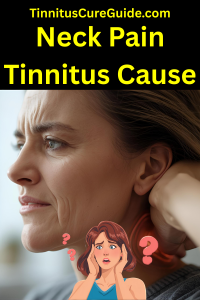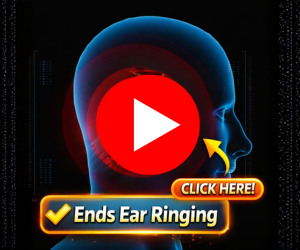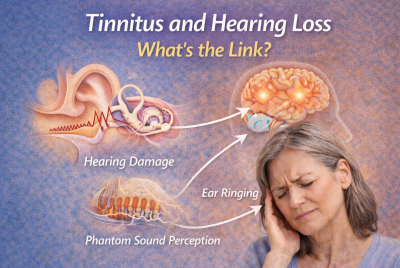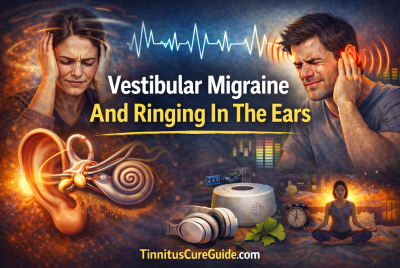Neck Pain Tinnitus Cause: Understanding the Link and Finding Relief
Do you ever notice ringing, buzzing, or whooshing in your ears after a stiff neck or lingering neck pain? You’re not imagining it—neck problems and tinnitus often go hand-in-hand. Many people are surprised to learn that neck pain can contribute to tinnitus symptoms, and this connection is more common than you might think. In this guide, we’ll break down the science behind the neck pain tinnitus cause, how your spine and nerves may be affecting your hearing, and most importantly, what you can do to find relief. Whether you’re experiencing constant ear ringing, sudden tinnitus, or ear buzzing sounds, understanding this connection could be a crucial step in managing your condition.
What Is Tinnitus?
Tinnitus is the perception of sound without an external source. It often presents as:
-
Ringing in the ears
-
Buzzing or humming sounds
-
High-pitched ear noise
-
Whooshing in ears
-
Pulsatile tinnitus (a sound that matches your heartbeat)
While chronic tinnitus is often linked to hearing loss or inner ear damage, researchers have found that neck issues—such as muscle tension, poor posture, or cervical spine problems—can also trigger or worsen symptoms.
How Neck Pain Can Trigger Tinnitus
The neck pain tinnitus cause is rooted in the complex relationship between the cervical spine, nerves, and auditory pathways. Here’s how they connect:
-
Cervical Spine Misalignment
-
The neck houses nerves and blood vessels that supply the ears. Misalignment or compression can interfere with blood flow or nerve signals, leading to ear ringing.
-
-
Muscle Tension
-
Tight neck and shoulder muscles (often from stress or poor posture) can strain the auditory system. This tension may change how your brain perceives sound, worsening tinnitus.
-
-
Nerve Irritation
-
Irritation of cervical nerves can create abnormal signals that your brain interprets as sound.
-
-
Poor Circulation
-
Restricted blood flow in neck arteries can cause whooshing in ears (pulsatile tinnitus).
-
-
Jaw and Neck Connection
-
Temporomandibular joint (TMJ) dysfunction, often linked to neck tension, may amplify tinnitus symptoms.
-
Common Symptoms of Neck-Related Tinnitus
When tinnitus is linked to neck pain, symptoms often include:
-
Increased ringing in ears after turning or moving your neck
-
Ear buzzing sound that worsens with neck stiffness
-
Constant ear ringing following neck strain or injury
-
Headaches, dizziness, or light sensitivity
-
Relief or change in sound when adjusting posture
If these sound familiar, it’s possible that your neck pain and tinnitus cause is structural rather than strictly auditory.
Medical Conditions That Link Neck Pain and Tinnitus
Several health issues can explain why neck pain leads to tinnitus:
-
Cervical spine arthritis
-
Cervical spondylosis (degenerative changes in neck vertebrae)
-
Whiplash injuries
-
Herniated cervical discs
-
Fibromyalgia or chronic muscle tension
-
TMJ disorders
In these cases, treating the underlying neck condition often helps reduce tinnitus.
Diagnosing the Neck Pain Tinnitus Cause
Doctors may use a combination of:
-
Physical exam (checking posture, range of motion, muscle tension)
-
Imaging tests (X-rays, MRI, CT scans of cervical spine)
-
Audiology tests to assess hearing loss or ear damage
-
Neurological evaluations to check nerve function
If you notice sudden tinnitus after a neck injury, seek immediate medical care.
Treatment Options for Neck Pain-Related Tinnitus
The good news? If neck pain is contributing to your tinnitus, addressing the root problem often improves symptoms.
1. Medical Treatments
-
Physical therapy: Improves posture, reduces tension, and restores cervical alignment.
-
Chiropractic care: Gentle adjustments may ease pressure on nerves and improve circulation.
-
Pain management: Anti-inflammatory medications or muscle relaxants can reduce tension-related ringing.
-
Surgery: Rarely required, but necessary for severe cervical disc problems.
2. Home Remedies
-
Neck stretches: Daily gentle exercises relieve stiffness.
-
Heat therapy: Warm compresses relax tight muscles.
-
Cold packs: Reduce inflammation after injury.
-
Posture correction: Adjust desk height, use ergonomic chairs, and avoid “tech neck.”
3. Tinnitus-Specific Treatments
-
White noise machines: Mask constant ear ringing.
-
Tinnitus sound therapy apps: Use nature sounds or music for relief.
-
Hearing aids for tinnitus: Especially useful for those with hearing loss.
-
Cognitive Behavioral Therapy (CBT): Helps reduce stress and reframe tinnitus perception.
Lifestyle Adjustments for Long-Term Relief
Addressing the neck pain tinnitus cause often requires lifestyle changes:
-
Stay active: Gentle yoga or Pilates improves flexibility and reduces stiffness.
-
Manage stress: Stress fuels both neck tension and tinnitus—try meditation or breathing exercises.
-
Improve sleep posture: Use a supportive pillow to reduce strain on your neck.
-
Stay hydrated: Dehydration worsens muscle tension and tinnitus.
-
Balanced diet: Reduce caffeine, alcohol, and salt—common tinnitus triggers.
Prevention Tips: Protecting Your Neck and Ears
To prevent future flare-ups of ringing in ears after neck pain:
-
Take breaks from screen time to avoid “tech neck.”
-
Stretch your neck every 30–60 minutes.
-
Maintain good posture, especially while driving or working.
-
Use noise protection in loud environments to avoid compounding tinnitus.
-
See a doctor for early signs of chronic neck pain.
Real-Life Coping Strategies
Many U.S. tinnitus sufferers find relief by combining medical care with daily habits:
-
Sound masking devices help block ear buzzing sounds at night.
-
Massage therapy reduces muscle knots and neck-related tinnitus triggers.
-
Mindfulness meditation lessens the stress-tinnitus cycle.
-
Support groups provide encouragement and practical advice.
FAQs About Neck Pain and Tinnitus
1. Can neck pain really cause tinnitus?
Yes. Neck pain can compress nerves, restrict blood flow, or strain muscles, all of which may trigger or worsen tinnitus symptoms. Addressing the neck issue often reduces ear ringing.
2. How do I know if my tinnitus is from neck problems?
If your ear ringing changes when you move your head, adjust posture, or after neck strain, your tinnitus may be linked to neck issues rather than just ear damage.
3. Will physical therapy help tinnitus from neck pain?
Physical therapy can improve posture, reduce muscle tension, and restore neck mobility. Many people notice their tinnitus symptoms lessen after consistent therapy.
4. Can poor posture make tinnitus worse?
Yes. Slouching or forward head posture puts strain on the cervical spine and surrounding muscles, which can aggravate tinnitus. Correcting posture may help reduce symptoms.
5. What home remedies help with neck-related tinnitus?
Try gentle neck stretches, warm compresses, proper pillow support, and stress management. White noise machines or tinnitus sound therapy apps can help mask ringing.
6. Is tinnitus from neck pain permanent?
Not always. If the root neck issue is treated—whether muscle tension, nerve compression, or injury—tinnitus may improve significantly or even disappear.
7. Should I see a doctor for neck pain tinnitus?
Yes, especially if symptoms appear suddenly after an injury or are accompanied by dizziness or hearing loss. An ENT or neurologist can determine the cause and treatment.
Neck Pain Tinnitus Cause – Conclusion
The neck pain tinnitus cause is real, and for many people, understanding this link is the first step to relief. By addressing cervical spine issues, improving posture, reducing stress, and using supportive tinnitus treatments like sound therapy or hearing aids, you can take control of your symptoms.
Remember: tinnitus doesn’t have to control your life. With the right strategies, you can protect your hearing, ease your neck pain, and finally find relief from the ringing in your ears.
⚠️ Disclaimer: This article is for informational purposes only and not a substitute for professional medical advice. Always consult a qualified healthcare provider about tinnitus, hearing issues, or neck pain.

- Natural Remedies for Ear Ringing
- Why Does My Ear Ring Only When Lying Down
- Vitamin B12 Deficiency Tinnitus Relief






